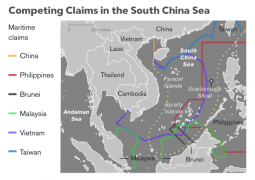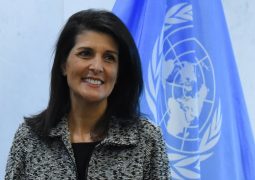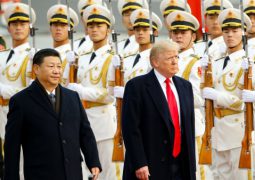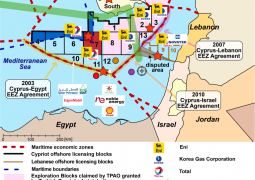Trump Budget Would Convert Many Overseas Military Grants to Loans
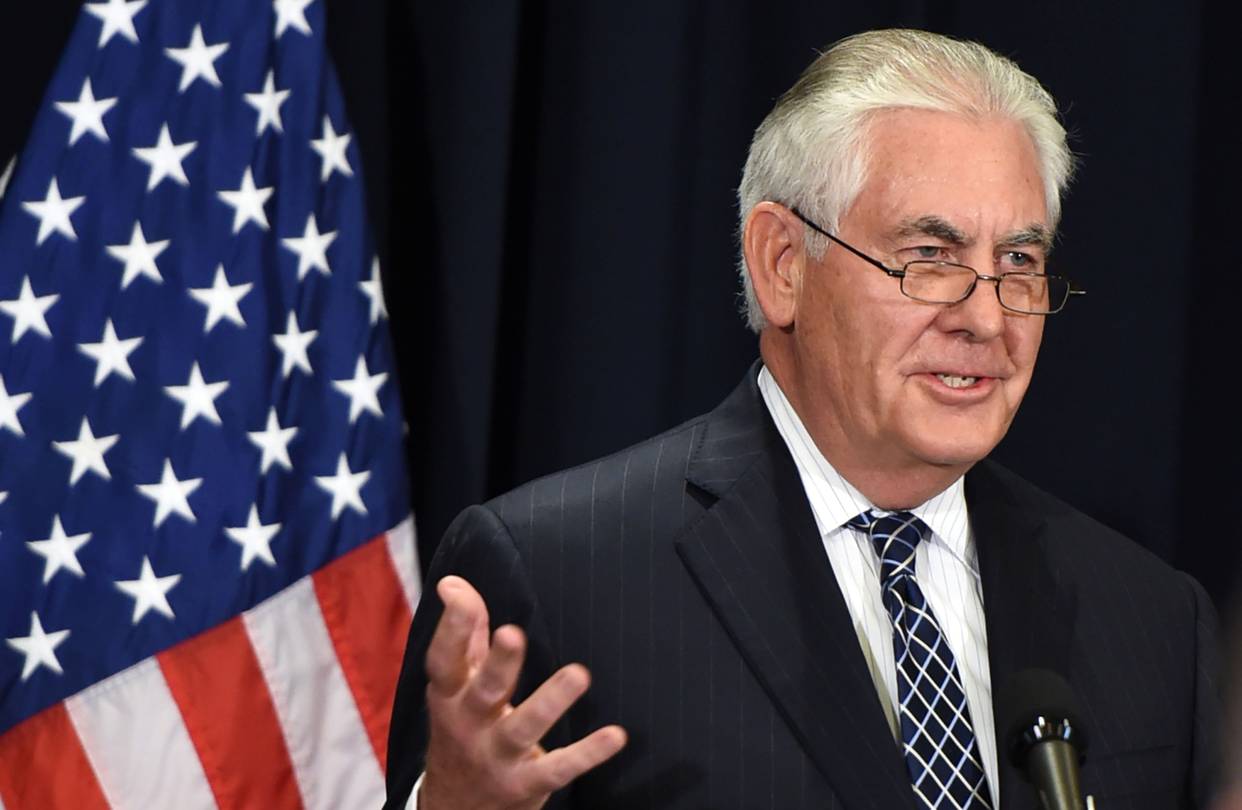
WASHINGTON—President Donald Trump’s budget proposal this week will include provisions to end many foreign military grants administered by the State Department and replace them with loans, a move that could affect up to $1 billion in aid to dozens of countries if Congress approves, U.S. officials said.
An internal State Department memo reviewed by The Wall Street Journal names Pakistan, Tunisia, Lebanon, Ukraine, Colombia, Philippines and Vietnam as among countries that could be affected.
Typically, the State Department’s Office of Security Assistance receives about $6 billion to dispense as military aid grants. That sum includes $3.1 billion for Israel, about $350 million for Jordan and about $1.3 billion for Egypt. Those grants will be preserved in the 2018 budget, officials said.
Pakistan, which usually receives about $265 million in grant assistance, will see that number go down to about $100 million under the new budget, officials said.
Most other countries will see their assistance converted from grants to loans.
The grants have allowed countries to buy U.S. equipment such as ammunition, vehicles, protective equipment and naval vessels.
Mr. Trump’s administration is set to release his full budget proposal on Tuesday. The administration is considering cuts of up to 31% to the State Department and the U.S. Agency for International Development, The Journal has reported.
Congressional officials, along with current and former U.S. officials, said a key concern is that eliminating the military-grant program would cause countries to look to U.S. rivals, such as Russia and China. The internal State Department memo outlines what officials see as the likely effects of cuts.
“Without such assistance, partners will likely either not develop/sustain those capabilities, or may turn to other countries (e.g., Russia, China) to assist them in developing them,” the memo says.
The internal memo says most countries offered loans are unlikely to take them.
“Converting FMF grants to a loan support mechanism will not assist the vast majority of countries that receive this support, since they would not desire to take out, or would not qualify for an international loan,” the memo says.
Officials with the White House’s Office of Management and Budget didn’t respond to questions about the cuts, and have deferred comment until the full budget is released. Officials from most potentially affected countries didn’t address the comments.
Pakistan’s Ambassador to the U.S., Aizaz Chaudhry, said: “Pakistan believes that our relations with the U.S. are a high priority. The two countries need to further strengthen mutually beneficial economic, trade and investment relations.”
Mr. Trump has spoken frequently about what he sees as the need for U.S. partners abroad to pay for more of their own defense needs and for Washington to focus on U.S. priorities. But a congressional aide said the shift from grants to loans was unlikely to “play very well” among lawmakers.
“There’s real concerns among authorizers over this,” he said. “If you care about U.S. influence with these countries for counterterrorism and national security purposes, this will go a long a way to kill it.”
The memo cites Lebanon, which it said “may lack the ammunition and vehicles necessary to maintain operations against ISIS” without the U.S. grant program.
Cameroon, Chad and Niger, “may be unable to maintain their airlift, intelligence, surveillance and reconnaissance and protected mobility capabilities necessary to defeat Boko Haram,” the memo says.
For Pakistan, its “maritime forces may have a reduced ability to patrol the maritime border,” the memo says. “Pakistan’s ability to continue participating in USNAVCENT-led maritime coalitions will come into doubt, as the Pakistan Navy is in the process of decommissioning its British-class frigates and needs additional surface vessels.”
The cuts could affect Ukraine’s ability to deploy countermortar radars, an important issue in its struggle with pro-Russia separatists backed by Moscow, the memo says.
In Colombia, where the U.S. is supporting efforts to move beyond a 50-year civil war, the cuts could affect the country’s ability to maintain its helicopter fleet, needed to fight organized crime in remote areas, the memo says.
Andrew Shapiro, a former Obama administration official who headed the State Department’s bureau of Political Military Affairs, said the grant program benefits U.S. diplomats and U.S. companies.
“The program helped ambassadors, defense attachés and visiting officials develop relationships,” he said. “This could also hurt U.S. companies who could sell these products. Countries will now look elsewhere because our stuff is more expensive than anyone else’s. It’s the best but you pay for the best.”
- Previous A Reclusive Millionaire’s Vast New Zealand Sculpture Park
- Next M’sia-China anti-narcotics agencies bust international drug syndicate – See more at: http://star.com.my/msia-china-anti-narcotics-agencies-bust-international-drug-syndicate#sthash.yLZj899t.dpuf



